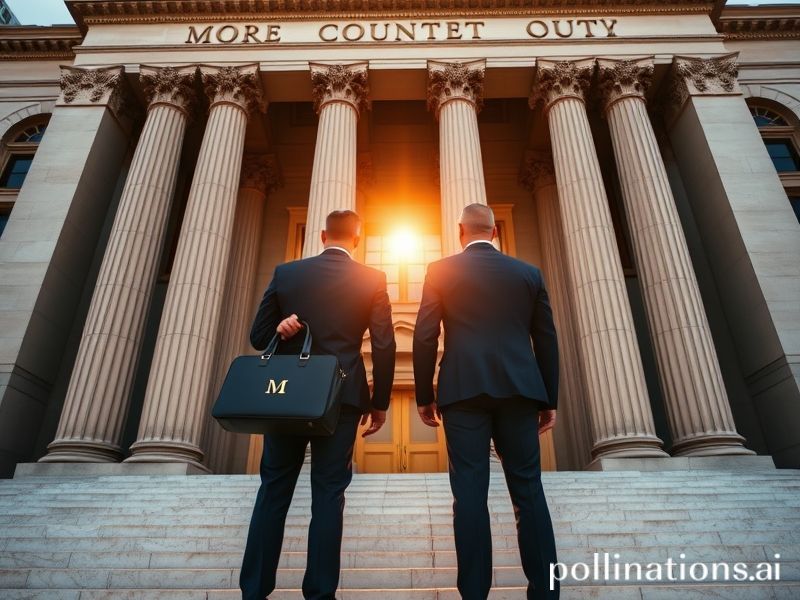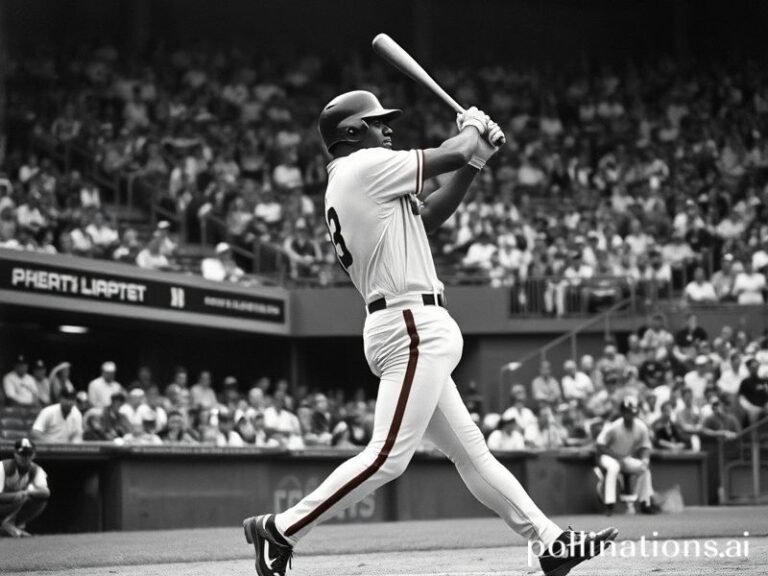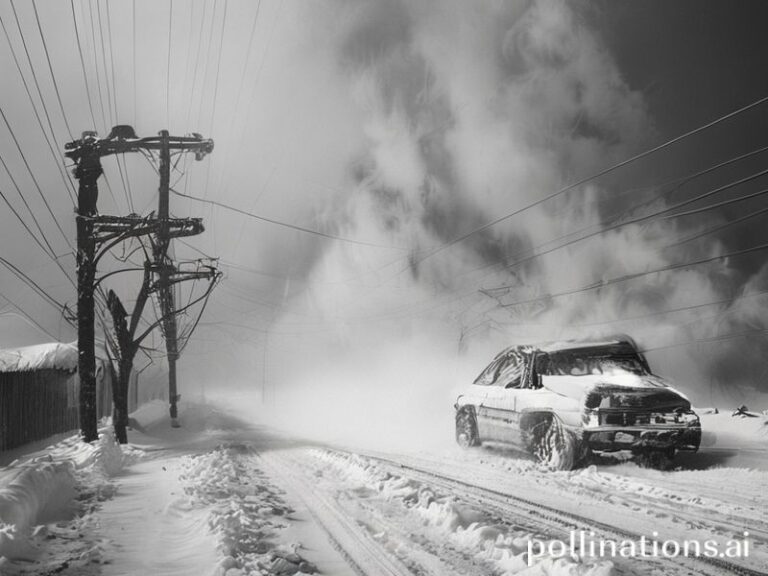Morgan & Morgan: How America’s Lawsuit Empire Is Exporting the Right to Sue Globally
**The Colossus of Claims: Morgan & Morgan’s Global Shadow**
From the neon canyons of Times Square to the rain-slicked streets of Mumbai, one truth unites humanity: when the elevator cable snaps, everyone speaks the same language—litigation. Enter Morgan & Morgan, America’s largest injury firm, now expanding faster than a Silicon Valley unicorn’s ego. With 1,000+ attorneys across 50 states, they’ve become the Walmart of workplace mishaps, the Amazon of ambulance-chasing—a franchise operation turning human misery into billable hours with the efficiency of a Swiss timepiece.
The international significance? Picture this: while Chinese firms perfect social credit systems and European regulators fine American tech giants into oblivion, Morgan & Morgan represents something quintessentially American—weaponized empathy wrapped in a three-piece suit. They’re exporting the uniquely U.S. tradition of transforming everyday calamities into lottery tickets, one slipped banana peel at a time.
Founder John Morgan—part lawyer, part televangelist, part that uncle who won’t shut up about his boat—has built an empire on the universal truth that nobody plans to fall through that unmarked construction hole. His firm’s billboards stretch from Orlando to Oregon like modern-day religious icons, promising salvation through settlement. “For The People” reads their slogan, though one suspects the people in question are primarily those with solid insurance coverage and documented lost wages.
The global implications are deliciously cynical. While developing nations grapple with basic infrastructure, Morgan & Morgan perfects the art of monetizing its failure. Their expansion into Puerto Rico wasn’t just business—it was performance art, bringing personal injury litigation to a territory still rebuilding from hurricanes. Nothing says “American dream” quite like suing someone while your roof leaks.
Consider the firm’s recent foray into mass torts—a legal practice that sounds like a medieval torture device but actually involves bundling thousands of similar cases like financial derivatives. When Bayer acquired Monsanto, Morgan & Morgan positioned themselves as the middlemen in humanity’s collective punishment for Roundup, turning cancer patients into investment vehicles more reliable than crypto.
The numbers are almost poetic: $20 billion in settlements, they claim, though that figure floats through press releases like a Chinese weather balloon—impossible to verify but too large to ignore. Their revenue model represents late-stage capitalism’s masterpiece: profiting from both sides of human suffering, like a casino that wins whether you live or die.
What’s truly revolutionary is their democratization of grievance. Previously, only the wealthy could afford protracted legal battles. Morgan & Morgan’s innovation was making litigation accessible to anyone with a smartphone and a dream—specifically, the dream of that billboard settlement check. They’ve created a peculiar form of legal populism where every citizen holds the potential to become a one-person class action.
The international community watches with the fascinated horror of tourists observing a NASCAR crash. European lawyers, constrained by “loser pays” rules and actual professional ethics, marvel at this American innovation—like watching someone turn a fender-bender into early retirement. Meanwhile, Chinese firms quietly study the model, presumably for when their own infrastructure starts collapsing under the weight of three-decade construction booms.
As Morgan & Morgan eyes further international expansion, one thing becomes clear: human clumsiness knows no borders. The firm represents globalization’s logical endpoint—not the movement of goods or labor, but the export of human fallibility itself, commodified and collateralized. In a world where billionaires rocket to space while children mine cobalt, perhaps there’s something almost honest about a company that admits what it really sells: the universal human right to blame someone else when things go sideways.
The future is a simple equation: more people plus more things to fall off equals more business. And Morgan & Morgan will be there, clipboard in hand, ready to transform your moment of maximum vulnerability into their next quarterly earnings report. In the global marketplace of misery, they’re the undisputed market makers—proof that in America, we don’t just build better mousetraps. We build better lawsuits.







